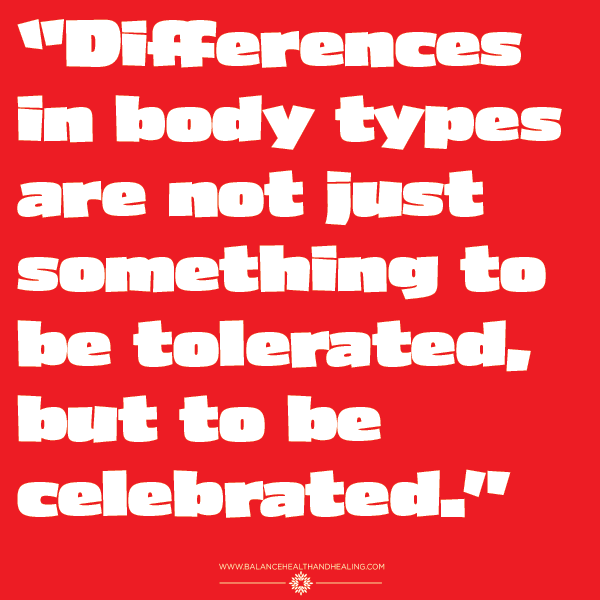
Recovery: A Family Affair
So, you’re doing the hard and vulnerable work of recovering from an eating disorder, disordered eating patterns, or body image difficulties. You have challenged the food rules, you can actually define (and freely use) the phrases “intuitive eating” and “joyful movement.” You and your body are finally making amends after years of battle. You’ve got a handy-dandy list of coping mechanisms and distress tolerance skills that actually work (and you’ve probably tried some out that definitely do NOT work as well). You may be feeling more like yourself, more present in your relationships, more in touch with your primary emotions, and probably a little tired (recovery can be exhausting!)
 If you’re like many of my clients, one question that is probably coming up for you now is: how do I maintain recovery if friends and family are still entrenched in diet-culture, actively pursuing weight-loss, continuing to make comments about other’s bodies, or may not be supportive of my recovery process? Eating recovery can be so liberating and bring a new sense of peace, however, this is sometimes accompanied by the wonders of how to navigate a world that may not be recovery-minded.
If you’re like many of my clients, one question that is probably coming up for you now is: how do I maintain recovery if friends and family are still entrenched in diet-culture, actively pursuing weight-loss, continuing to make comments about other’s bodies, or may not be supportive of my recovery process? Eating recovery can be so liberating and bring a new sense of peace, however, this is sometimes accompanied by the wonders of how to navigate a world that may not be recovery-minded.
If you are in this space, know that you are not alone. Learning to navigate family is a common and vital part of recovery. As a marriage and family therapist, I believe that our family systems are hugely influential (positively and negatively) in our development and healing. Here are some quick reminders of ways to navigate a challenging family system.
1. Educate
Here’s the thing: I don’t think your family members intend to sound eerily similar to your eating disorder, however, their well meaning or misguided intentions do not necessarily lessen their impact. Your family members may just lack information. They may even be in a similar headspace as you were when you began your recovery journey. This is when education can be your best friend. Helping your family members understand the dangers of diet culture, the physical and psychological risks of restriction, and most importantly your pain as you navigate recovery allows them to be more understanding, sensitive, and supportive. I often talk about some of the concepts of recovery such as intuitive eating, body neutrality, and understanding emotional needs as “uncovering buried treasure”. Not everyone has learned the things that you have learned as you’ve gone through recovery. Perhaps letting your family members in on your new knowledge will allow them to think differently, or in the very least, be more aware of how the things they do and say may impact you. This can be done on your own, or with your treatment team (I absolutely love bringing family members into session!)
through recovery. Perhaps letting your family members in on your new knowledge will allow them to think differently, or in the very least, be more aware of how the things they do and say may impact you. This can be done on your own, or with your treatment team (I absolutely love bringing family members into session!)
2. Set Strong Boundaries
Boundaries are important for any relationship. Although they can feel very difficult to set, boundaries actually foster closeness in relationships. Our queen, Brené Brown, says that “Daring to set boundaries is about having the courage to love ourselves, even when we risk disappointing others.” Brené goes on to talk about setting boundaries as actually one of the most compassionate things you can do, both for yourself and those in your life. Setting boundaries means communicating your needs to those you love so that they can help support you. If you are struggling with feeling supported by family members through eating recovery, setting and keeping clear boundaries will help save your relationship from causing unintentional pain on their part and pent-up resentment on your part. Setting a boundary may sound like, “It’s important to me that we don’t talk about other people’s bodies or comment on weight, even if it’s a ‘compliment.’” It might also sound like, “When you talk about your diet in front of me the story I tell myself is that my recovery doesn’t matter. Can you limit talking about your diet with me so I can maintain my progress in recovery and be open with you about my experiences?”, “I won’t be participating in the family weight loss change (aside: why does everyone like to do family weight-loss challenges??),” or even a simple “No.” You may not feel able or willing to vulnerably share what your boundaries are with every member of your family, however, setting healthy boundaries with those in your family that you trust will benefit your relationship with that person and aid in your recovery. We are not islands; we are deeply connected to others. Setting boundaries is a bid for help and support in your recovery process and invites those closest to you to be a part of your healing while keeping your recovery safe.
3. Garner Additional Support
As a marriage and family therapist I believe in the deep healing that can come from families as they show up and support one another. I also believe it is absolutely vital that we have strong networks of support apart from our families. Especially if your family is having a hard time understanding your recovery work, a supportive network of friends, mentors, extended family, dietitians, group therapy members, doctors, therapists, etc. will be absolutely essential. Find “your people” and keep them close during recovery.
4. Remember Recovery is YOURS
Finally (and let’s be real, most importantly), although there is so much value in family and social support, at the end of the day your recovery is ultimately your responsibility. I yearn for my client’s families to rally around them and buoy them up, as the load of recovery can be heavy and draining. That being said, it is up to you to navigate your own recovery, even when your family may be intentionally or unintentionally unsupportive. Finding support and compassion within yourself will be an important aspect of your recovery journey. I believe your family will be greatly influenced for the better as you heal and recover AND I also believe that at the end of the day it is your life and your peace that you are working for. Although you may be experiencing heartache as you navigate eating recovery without direct family support, remember to show up for yourself and your recovery despite challenges you may be facing in other relationships. Do not forget the most important relationship you have: your relationship with yourself.


 I recently signed up for a four-hour song-writing workshop. I would not consider myself to be a musical person. Growing up, I did choir in elementary school and played guitar for a few years in the middle school days. The last time I wrote a song was when I was in middle school. It was called “Cheese to my Macaroni,” not my best work.
I recently signed up for a four-hour song-writing workshop. I would not consider myself to be a musical person. Growing up, I did choir in elementary school and played guitar for a few years in the middle school days. The last time I wrote a song was when I was in middle school. It was called “Cheese to my Macaroni,” not my best work.  validated and welcomed, and I left feeling connected to myself and to those around me. I had done something so hard and scary. Whenever I do something vulnerable with high risks of failing or going against what you know and feel comfortable with, there is risk. However, this was absolutely a growing and meaningful experience for me. I am so grateful to have pushed myself and done something challenging and rewarding.
validated and welcomed, and I left feeling connected to myself and to those around me. I had done something so hard and scary. Whenever I do something vulnerable with high risks of failing or going against what you know and feel comfortable with, there is risk. However, this was absolutely a growing and meaningful experience for me. I am so grateful to have pushed myself and done something challenging and rewarding. There is a part of you that yearns for challenge and growth. There is something inside you that is ready to confront your fears, draw upon your strength (with help too), and lean into the vulnerability of growth and change. Eating recovery requires this of you.
There is a part of you that yearns for challenge and growth. There is something inside you that is ready to confront your fears, draw upon your strength (with help too), and lean into the vulnerability of growth and change. Eating recovery requires this of you. 
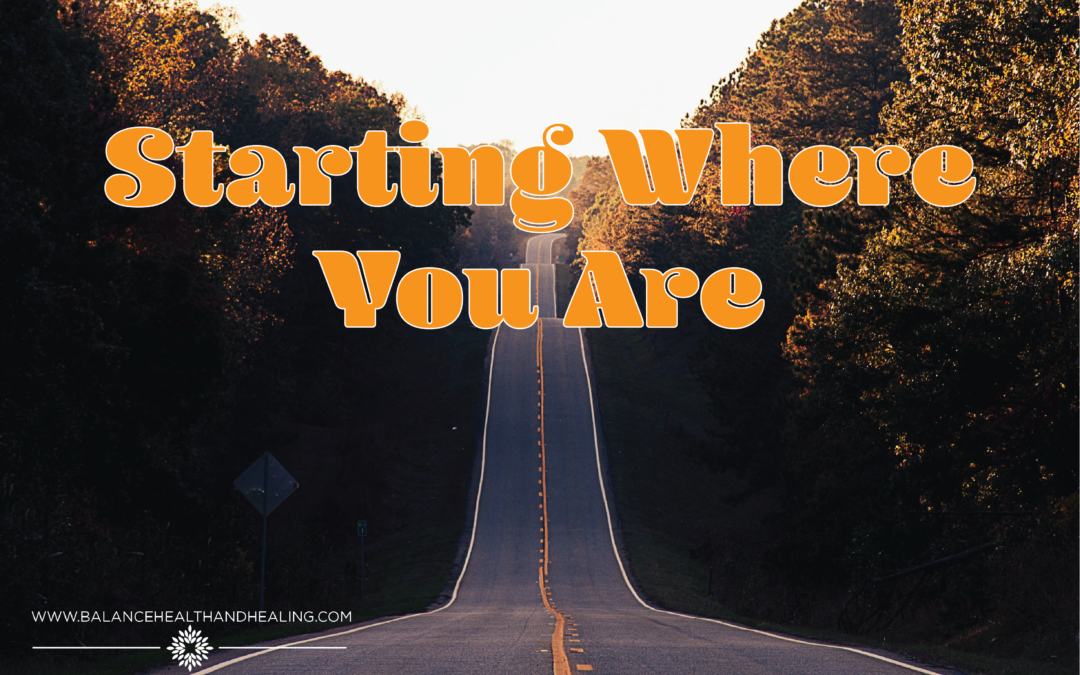
 Your emotions about your body tells you valuable information. They tell you about how you’ve been treated in the past, the way you seek acceptance, the way you’ve been hurt and survived, etc. Abandoning these feelings can feel inauthentic at best and unsafe and self-betraying at worst.
Your emotions about your body tells you valuable information. They tell you about how you’ve been treated in the past, the way you seek acceptance, the way you’ve been hurt and survived, etc. Abandoning these feelings can feel inauthentic at best and unsafe and self-betraying at worst.  critical emotions about your body while adding, or making room for, gratitude, compassion, and understanding. You do not have to have an uncomplicated relationship with your body to add healing thoughts, desires, beliefs, and feelings to the mix.
critical emotions about your body while adding, or making room for, gratitude, compassion, and understanding. You do not have to have an uncomplicated relationship with your body to add healing thoughts, desires, beliefs, and feelings to the mix.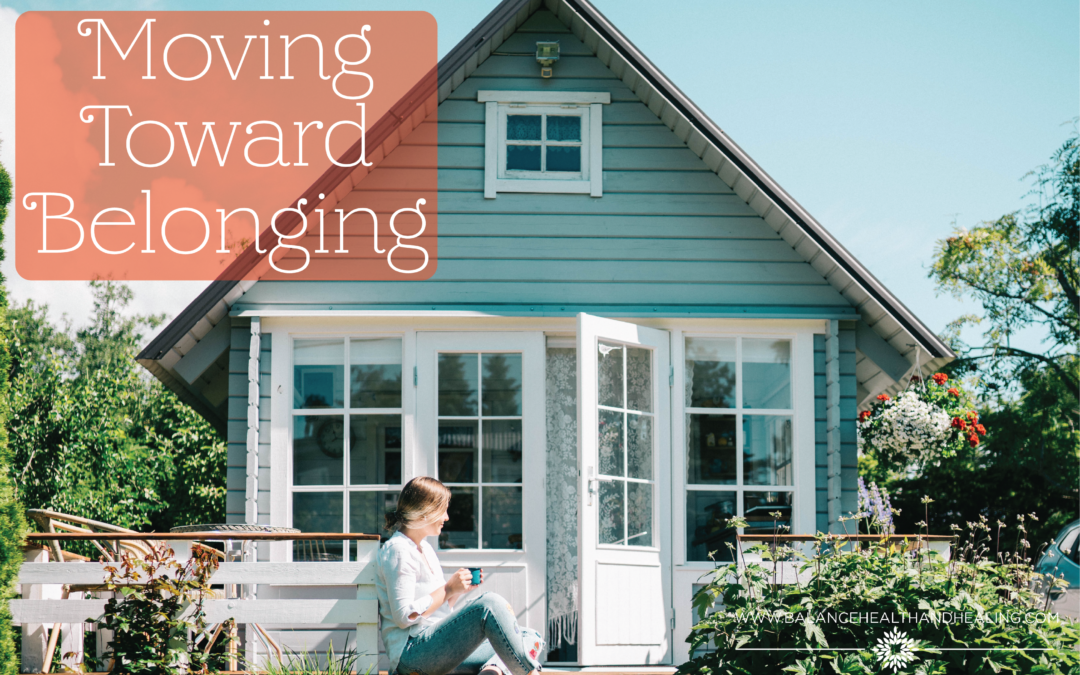
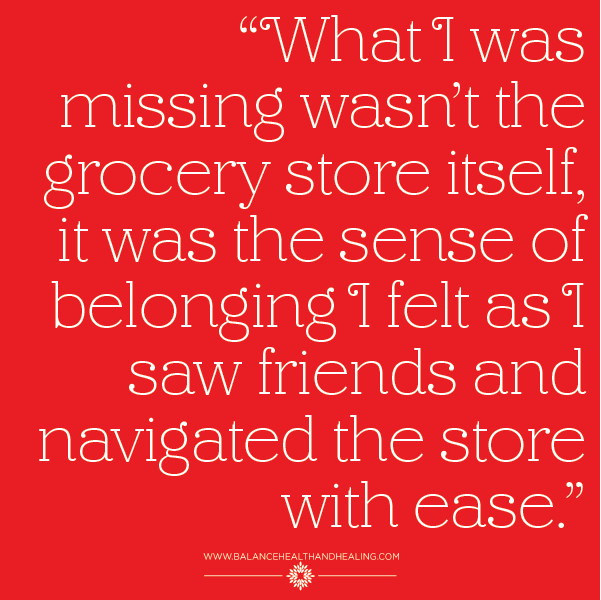 We had lived in our house for about two days before I started feeling sad that we hadn’t made any friends yet. My husband laughed and helped me remember that making friends takes time. The first time we went to the grocery store, I was sad I didn’t see any friends I knew. As I reflected on why I was feeling such a loss, I recognized that it wasn’t the place I was missing. I could find new favorite restaurants, make new friends, and re-establish a sense of normalcy. What I was missing wasn’t the grocery store itself, it was the sense of belonging I felt as I saw friends and navigated the store with ease. It wasn’t the restaurants I missed; it was the way I recognized the people behind the counter and the sense of connection I felt with them. I wouldn’t miss the shorter commute (okay, well maybe I would), but mostly I would miss the sense of familiarity the drive is, the way I felt like I knew exactly where I was and how I fit into the world around me.
We had lived in our house for about two days before I started feeling sad that we hadn’t made any friends yet. My husband laughed and helped me remember that making friends takes time. The first time we went to the grocery store, I was sad I didn’t see any friends I knew. As I reflected on why I was feeling such a loss, I recognized that it wasn’t the place I was missing. I could find new favorite restaurants, make new friends, and re-establish a sense of normalcy. What I was missing wasn’t the grocery store itself, it was the sense of belonging I felt as I saw friends and navigated the store with ease. It wasn’t the restaurants I missed; it was the way I recognized the people behind the counter and the sense of connection I felt with them. I wouldn’t miss the shorter commute (okay, well maybe I would), but mostly I would miss the sense of familiarity the drive is, the way I felt like I knew exactly where I was and how I fit into the world around me.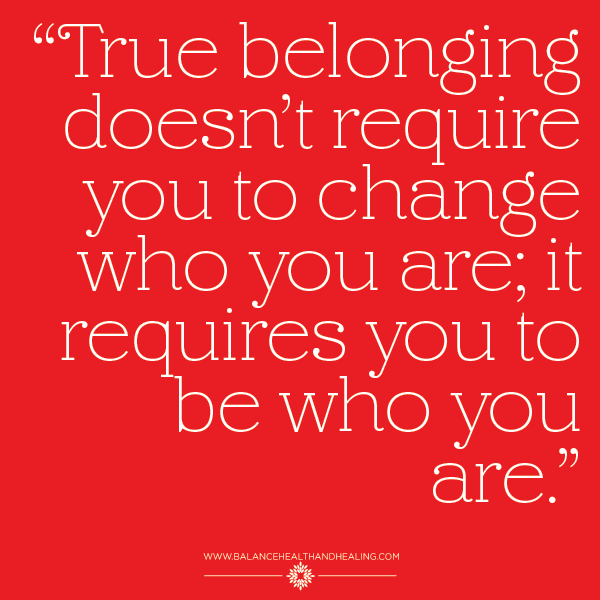
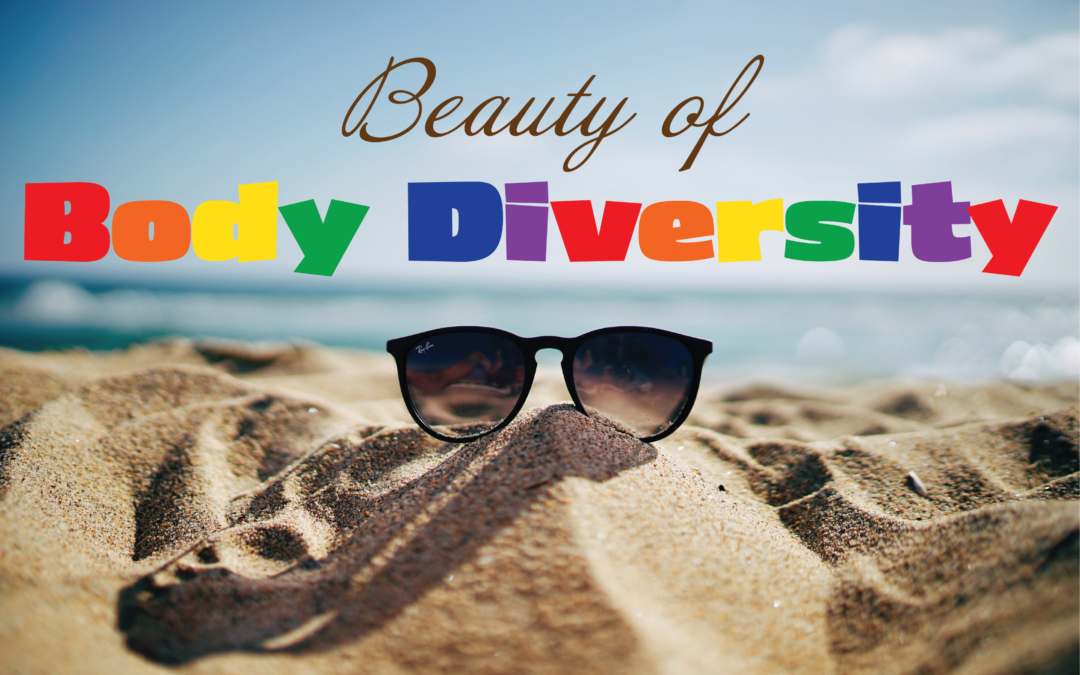
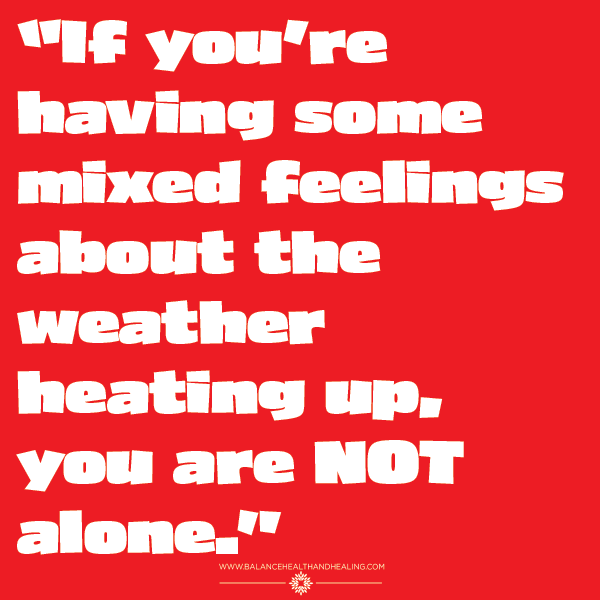 On the other hand, summer can often be hard for those struggling to create or maintain a peaceful relationship with food and body. If you’re having some mixed feelings about the weather heating up, you are NOT alone.
On the other hand, summer can often be hard for those struggling to create or maintain a peaceful relationship with food and body. If you’re having some mixed feelings about the weather heating up, you are NOT alone.